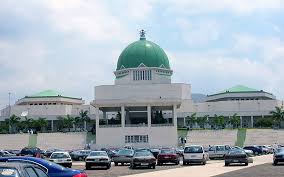House of Reps proposes bill to stop civil servants from using private schools, hospitals…leaves out political office holders
Maureen Aguta
The House of Representatives has introduced a new bill aimed at banning public and civil servants from using private schools and healthcare facilities, in a move designed to restore public confidence in Nigeria’s education and health sectors.
The proposed legislation, titled “A Bill for an Act to Prohibit Public and Civil Servants from Patronising Private Schools and Health Care Services and for Related Matters (HB 2487),” was formally introduced on Tuesday.
Speaking to journalists at the National Assembly, the bill’s sponsor, Hon. Amobi Godwin Ogah, explained that the initiative aims to encourage government officials and their families to rely solely on public hospitals and schools.
Ogah described the bill as a significant step toward reversing Nigeria’s steady decline in public institutions, adding that leadership must lead by example for genuine reforms to take root.
He stated that the widespread shift of government officials and civil servants to private and foreign institutions has been a significant factor on the deterioration of Nigeria’s public education and healthcare systems.
“This bill intends to prohibit all public and civil servants, including their immediate family members, from patronising private schools and healthcare services in order to avoid conflict of interest, maintain public trust and ensure high uncompromised standards and integrity of these public institutions,” Ogah said.
Citing Nigeria’s founding fathers, the lawmaker noted that Sir Ahmadu Bello, Dr. Nnamdi Azikiwe, Chief Obafemi Awolowo and Sir Tafawa Balewa were all products of public schools, unlike the present trend where public officials shun government institutions.
Ogah decried the level of capital flight associated with medical and educational tourism, revealing that Nigerians spent over $29.29 billion on foreign medical treatment during the administration of former President Muhammadu Buhari, while at least $218.87 million went into foreign education in 2023 alone.
In comparison, he said only N1.336 trillion was allocated to healthcare in Nigeria’s 2024 national budget, a figure that falls far short of the estimated N1.6 trillion spent annually by Nigerians seeking treatment abroad.
“If we have started the removal of petroleum subsidy, we must also enforce this bill to prohibit the patronising of private schools and healthcare services by public and civil servants,” Ogah said.
He said due to the patronage of foreign health and education services, the country’s institutions of learning and medical care have become a shadow of themselves, with little or no infrastructural development and fallen standards.
The lawmaker said the proposed law would not only restore public confidence in government-run schools and hospitals but also help reverse the trend of top officials seeking medical care abroad and, in some cases, dying overseas.
He called on Nigerians, especially the media, to support the bill and embrace a new culture of national consciousness aimed at promoting and revitalising Nigeria’s public institutions.


